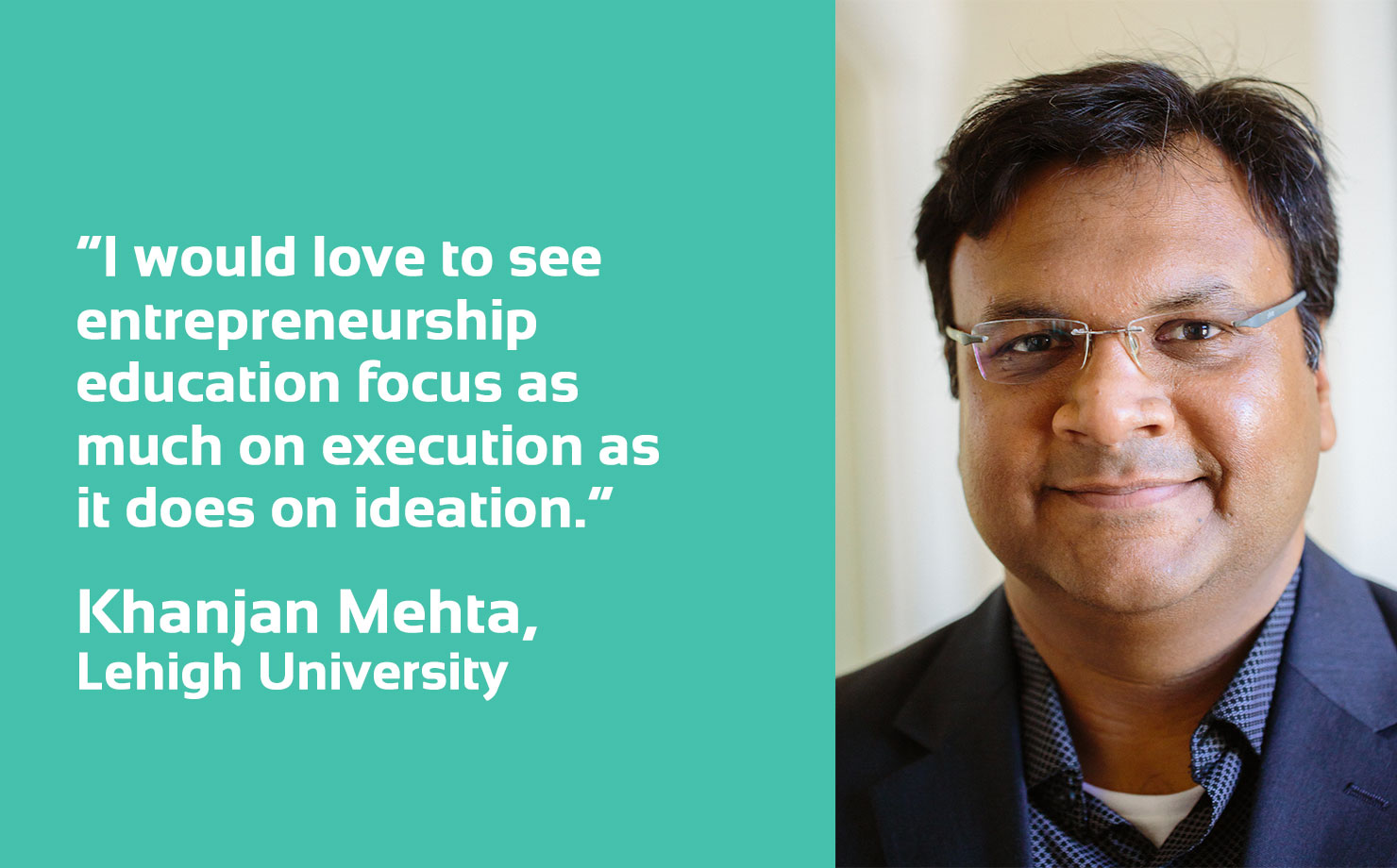
We continue our series highlighting educators within the VentureWell network who are doing good work—faculty members who are catalyzing change in higher education and inspiring students to impact the world through invention. This month’s faculty spotlight is Khanjan Mehta, Vice Provost for Creative Inquiry and Director of the Mountaintop Initiative at Lehigh University. Mehta is an active member of the VentureWell community, serving as a principal investigator for teams participating in the E-Team grant program as well as several Faculty Grants. He’s also a veteran presenter at our annual OPEN conference.
How did you get interested in teaching entrepreneurship?
In 2004, I was mentoring a student group that was trying to design and build a windmill in Western Kenya. While on a site visit, I noticed many existing windmills that were dysfunctional. I realized that we were doing it all wrong. An entrepreneurial approach was necessary to help keep existing windmills working, to empower local businesses, to reach more people, and truly transform life in the village. That’s exactly what we did, and it worked! That a-ha moment was the start of an incredibly exciting journey that resulted in several new courses, academic programs, 20+ successful social enterprises, and a few thousand students who got started on their own entrepreneurial journeys.
What is your favorite thing about teaching?
What makes me happy is seeing my students’ accomplishments. The moment a junior sees her name show up on a Google Scholar search for a journal article, or a senior sees a product she designed on the shelves of a store in rural Sierra Leone, is truly magical. I am not satisfied by light bulbs in the head. I need to see the fruits of innovation out in the world fulfilling their destiny.
Where would you like to see the field of entrepreneurship in five years?
I would love to see entrepreneurship education focus as much on execution as it does on ideation. Ideas, presentations, patents, or prototypes don’t necessarily solve problems. I teach students how to pivot, forge win-win partnerships, win regulatory approvals, and just get stuff done. The best way to deliver this education is to partner with them and actually do it.
What are the challenges you’re tackling in your work today?
I am mentoring teams addressing global health challenges or pursuing opportunities at the food-water-energy nexus. As an academic entrepreneur, I am striving to build programs and ecosystems that emphasize the outcomes beyond traditional learning outcomes. The current standard of undergraduate education is so focused on learning specific skills, on living life in 15-week increments, and on getting good grades. I want students to take full ownership of challenges, opportunities, and learn how to learn quickly.
What’s your most useful classroom activity or assignment?
Every activity in my class is designed to directly support interdisciplinary teams in advancing their multi-year ventures. For example, when we are out in the field conducting research and building social ventures, I make my students scour the market and find the going price for an item from 20+ vendors. They often spend two days just walking around and talking to vendors and come back with valuable information—and skills. They learn how to communicate across linguistic and cultural barriers, build relationships, negotiate, gather new design ideas from vendors, and learn some humility. Most importantly, they become confident in their ability to navigate a new space. And yes, most figure out how to pay lower than the locals do.
Learn more about VentureWell Faculty Grants.